Handling public assets after merger - Part 1: Confusion over arrangement plan
(Baonghean.vn) - After merging commune-level administrative units and merging blocks, hamlets, villages, and hamlets (collectively called hamlets), the problem of excess infrastructure and waste of investment resources and land has arisen. The solution to this problem is confusing.
MANY HEADQUARTERS AND CULTURAL HOUSES… “EXPOSTED TO THE SUN AND THE DEW”
Implementing the policymerger of commune-level administrative unitsAccording to Resolution No. 831 of the National Assembly Standing Committee, Nam Dan town was expanded its administrative boundaries and increased its population size by merging part of the area and population from Nam Thuong commune (old) and the entire area and population of Van Dien commune (old). After the merger, the town's office was moved to Van Dien commune headquarters, while the town's old headquarters is a spacious 3-storey building, newly put into use 3 years from the time of merger on an area of nearly 3,000 m2.2is abandoned.
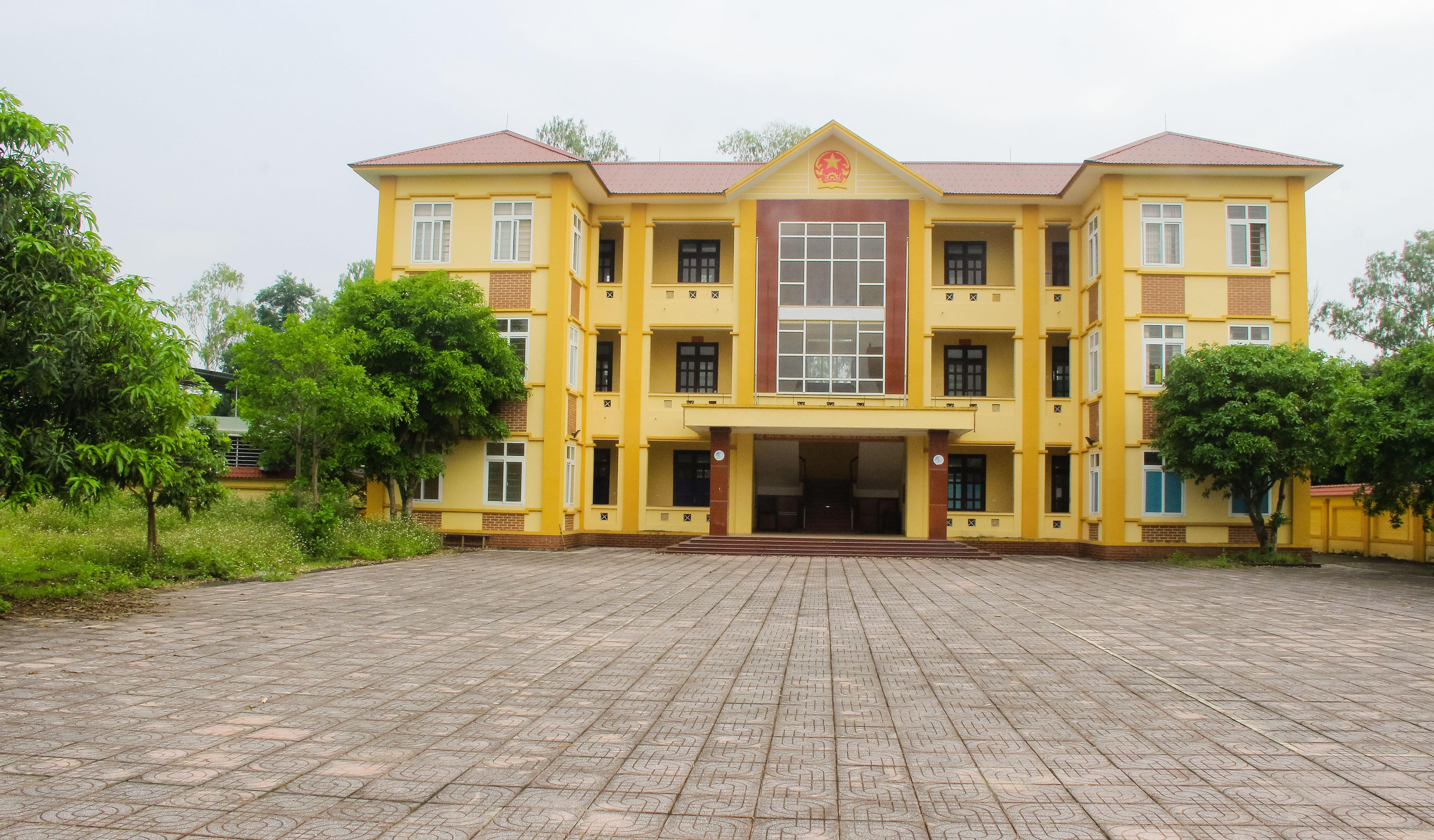 |
The old Nam Dan town headquarters was built 3 years ago at the time of the merger and is now abandoned. |
Explaining this issue, Mr. Nguyen Hong Hai - Chairman of Nam Dan Town People's Committee said that although the area is beautiful, the land of this headquarters has not yet been granted a Certificate of Land Use Rights. On the other hand, the functionality to suit the bidding organizations and individuals is also difficult to meet; if it is used as a Commune Police headquarters, it will be isolated, far from the commune center and residential center, so the locality is confused in handling it.
Currently, the locality has to allocate 1 million VND per month from the budget to hire security guards for this headquarters.
In Nam Dan town, there are 3 other facilities that are also abandoned, including the old town health station, the old Nam Thuong Primary School and the now dissolved Van Dien Commune Agricultural Service Cooperative Office. The town health station alone has a small area of only about 500 m2.2, the entrance is narrow, so it is difficult to talk about a feasible solution. For the cultural houses of the blocks, from 31 blocks, after the merger there are 19 blocks left and currently there are 11 surplus cultural houses (because Phan Boi Chau block merged 3 blocks but did not use the old cultural houses of the 3 old blocks but used other cultural houses in other locations). Of these 11 surplus cultural houses, except for 2 old cultural houses of Phan Boi Chau block that are being used for rental as production facilities, the rest are abandoned.
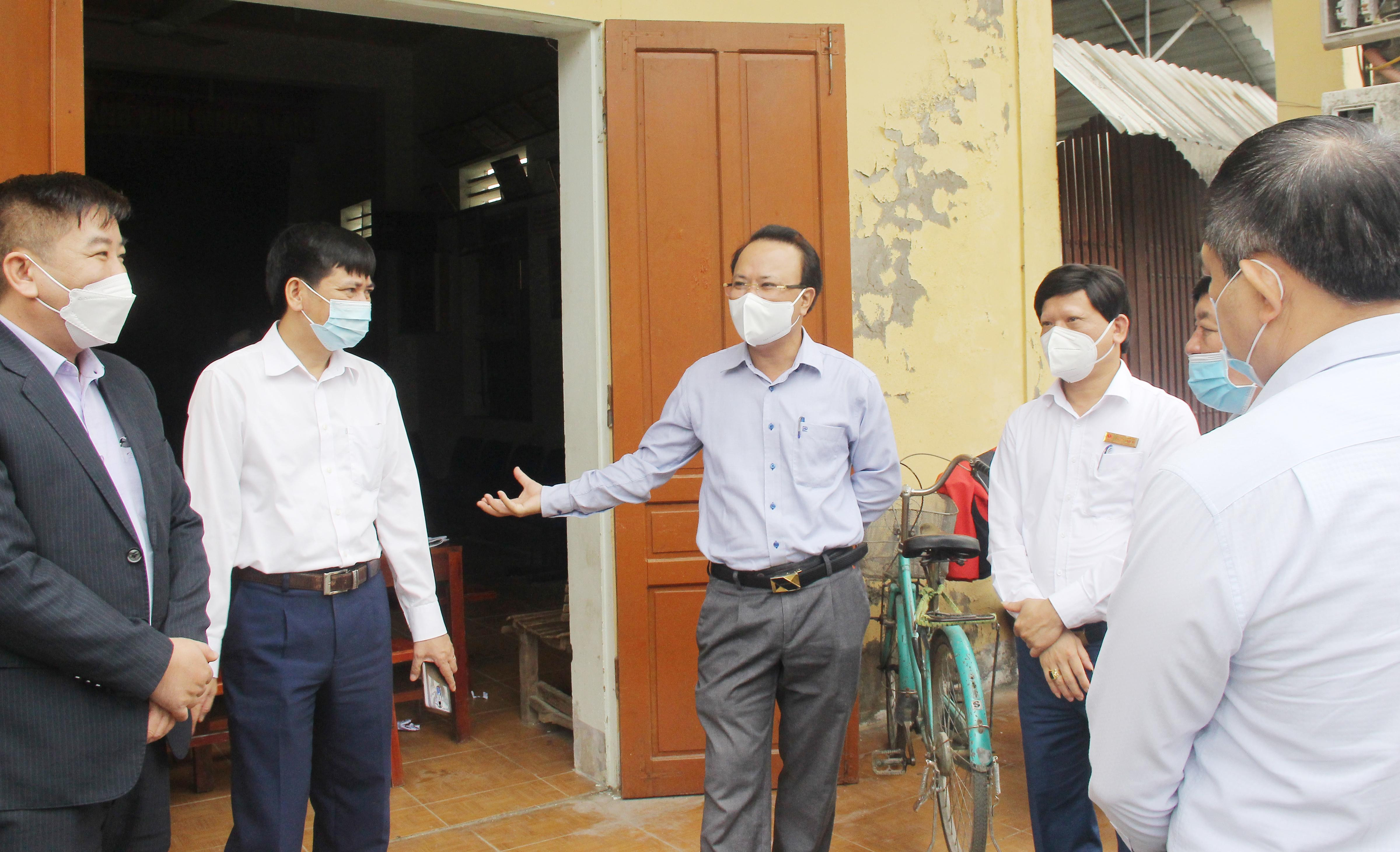 |
The working delegation of the Provincial People's Council Standing Committee directly surveyed the cultural facilities of Quang Trung block, Nam Dan town. |
In Thuong Tan Loc commune, Nam Dan district, which was merged by 3 communes: Nam Thuong, Nam Loc, Nam Tan, there are currently 2 redundant offices, of which 1 office is assigned to the junior high school and 1 office is assigned to the hamlet for management. In addition, the old Nam Loc commune health station office is vacant.
Similarly, in Minh Chau commune, Dien Chau district, which was formed after merging 3 communes Dien Minh, Dien Binh, Dien Thang and arranging the facilities, currently the 2 Dien Minh and Dien Thang Health Stations are completely abandoned and have not been handled yet. The old Dien Minh commune headquarters is assigned to Co Am pagoda for management and use; the old Dien Binh commune headquarters is used as the commune police headquarters and the workplace of the Fatherland Front and mass organizations.
Nghe An has merged 4,108 administrative units, blocks, hamlets, and public service units; of which, 35 communes were merged (reduced by 20 communes), 3,903 blocks, hamlets, and villages were merged (reduced by 2,090 blocks, hamlets); 170 public service units at the provincial and district levels were merged (reduced by 101 units). Accordingly, after the merger, there were 476 redundant facilities, of which 37 commune-level units were redundant; 400 blocks, hamlets, and villages were redundant; 39 provincial-level public service units and districts were redundant. Along with that, the total number of houses and land facilities that had to be rearranged after the merger was 4,302, with a total land area of more than 5,987,638 m2.2and the house area is more than 715,994 m2; of which, commune level has 184 establishments; block, hamlet, and village level has 3,937 establishments; public service units have 181 establishments.
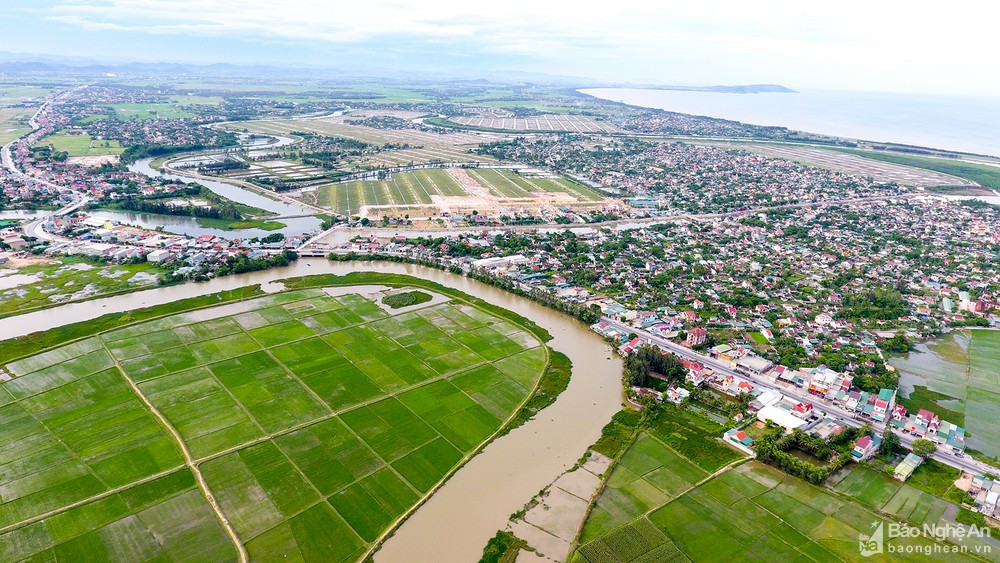 |
A corner of Dien Chau district. Photo courtesy: Nguyen Book |
Over-Quantity, Under-Scale
Along with the surplus of commune-level facilities, in reality, the cultural house facilities in the merged hamlets are currently in conflict, with excess quantity and lack of scale. In Dien Trung commune, Dien Chau district, from 19 merged hamlets to 10 hamlets, a reduction of 9 hamlets, meaning there are 9 surplus cultural houses. According to Mr. Cao Van Dung - Commune Cultural Officer, currently all the hamlets after the merger have chosen 1 cultural house as a place for activities. However, because the household size before the merger was only 70 - 150 households/hamlet, the hamlet cultural house also only meets the right size of that household; but after the merger, the population size increased from 150 - 320 households/hamlet, the current cultural house cannot meet the scale. When meeting with the people, the hamlets have to put more chairs on the porch and yard to make seats for the people.
As in hamlet 10, according to Hamlet Chief Le Khanh, from a population of only over 60 households in hamlet 11 and over 90 households in hamlet 15, the merged hamlet now has a scale of over 150 households. The merged hamlet has 2 cultural houses, but the hamlet chose one house to be a place for activities, leaving one extra cultural house, but the cultural house currently in use does not meet the needs of the people, making it very difficult. Similarly, in hamlet 6, from the population of hamlets 9 and 10 (old) merged into a scale of over 250 households, the cultural house and the campus of the 2 old hamlets do not meet the needs of the new hamlet. Currently, the hamlet is in need of building another cultural house in a new location to meet the scale of the cultural house attached to the campus according to the prescribed criteria.
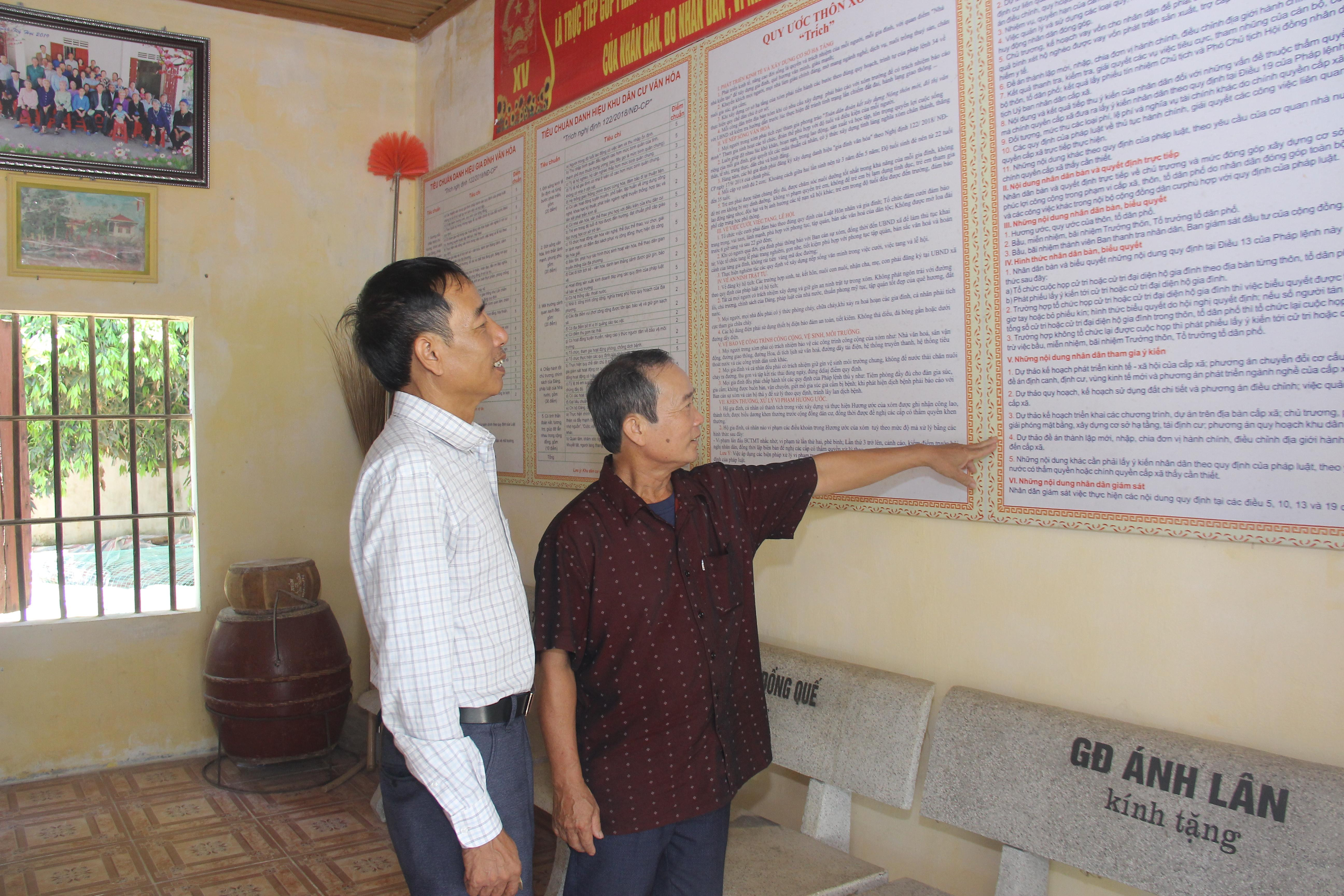 |
The Cultural House of Hamlet 8-9, Nghi Van Commune, Nghi Loc District after the merger does not have enough seats for the size of households. |
It can be said that, up to now, 3 years since the merger began, the handling of assets is still confusing. Through actual surveys, many places have waste in the use of headquarters and assets due to non-use or low functionality. Some localities have new, spacious facilities that are abandoned, causing waste but have not proposed solutions for handling them soon. Some residential and land facilities in hamlets and blocks after the merger have no need to use them, however, the assets on the land are capital invested in construction by the budget, the land use rights are purchased by the people in the hamlet themselves (there is no Certificate of Land Use Rights). Some residential and land facilities have been transferred to other units for use but have not been approved by competent authorities (such as Hung Nguyen district, where the old headquarters of the People's Committee of Hung Xa commune has been transferred to Hung Xa Kindergarten; some facilities have been transferred to the Commune Police as headquarters...).
Recently, at the explanation session on the management and use of public assets after the merger of administrative units and public service units in the province organized by the Standing Committee of the Provincial People's Council, Mr. Tran Viet Dung - Deputy Director of the Department of Finance - the unit assigned to preside over and advise on handling public assets after the merger - also said that some localities are still confused, have not agreed on the arrangement plan, legal documents are not available and have not been really active and focused on directing strongly, so the submission and approval of the arrangement plan is still slow.
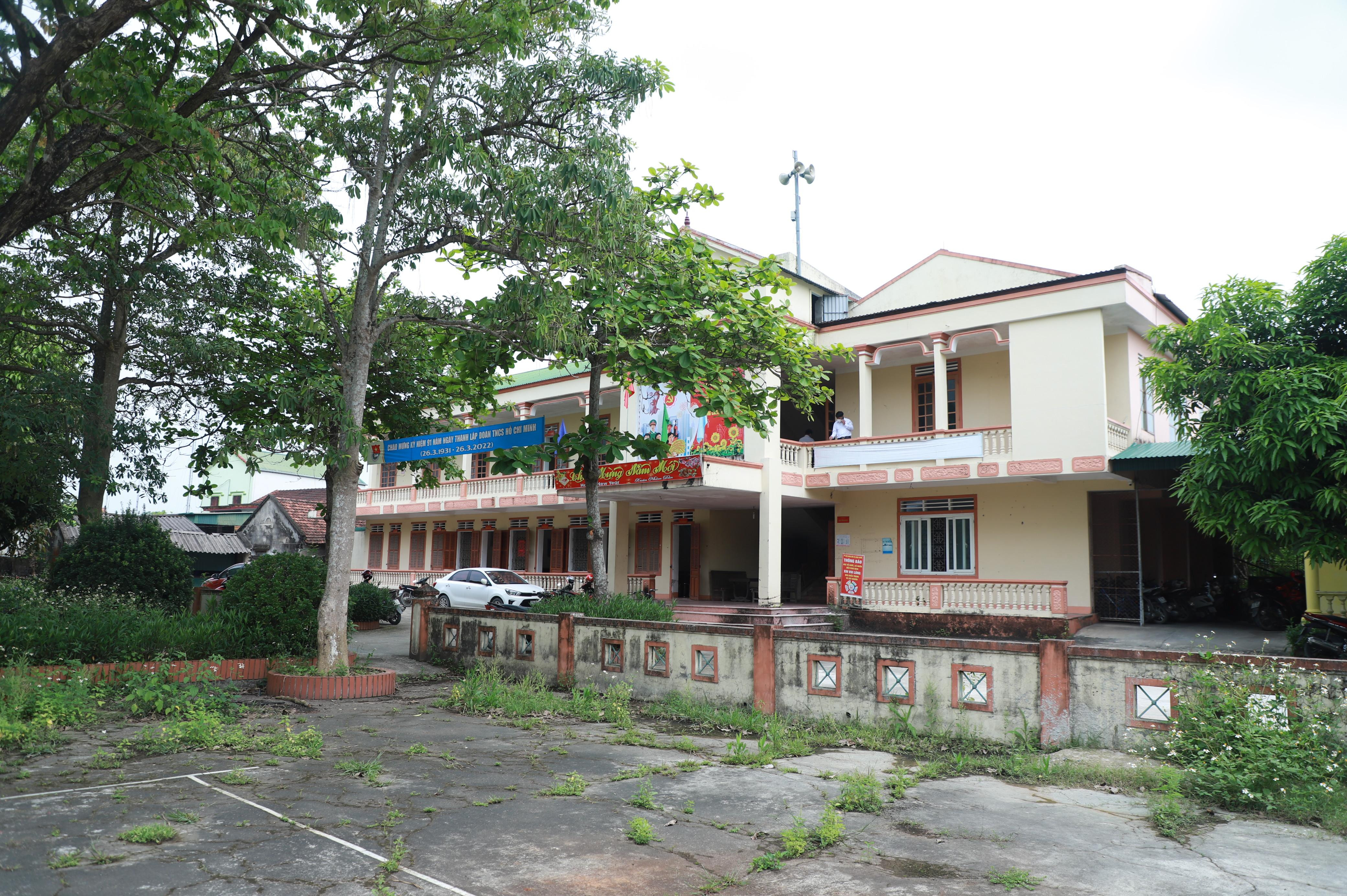 |
The headquarters of Hung Tien commune (old), Hung Nguyen district, after merging with Hung Thang commune to form Hung Nghia commune, is currently being arranged for use by commune agencies and organizations. |
(To be continued)
